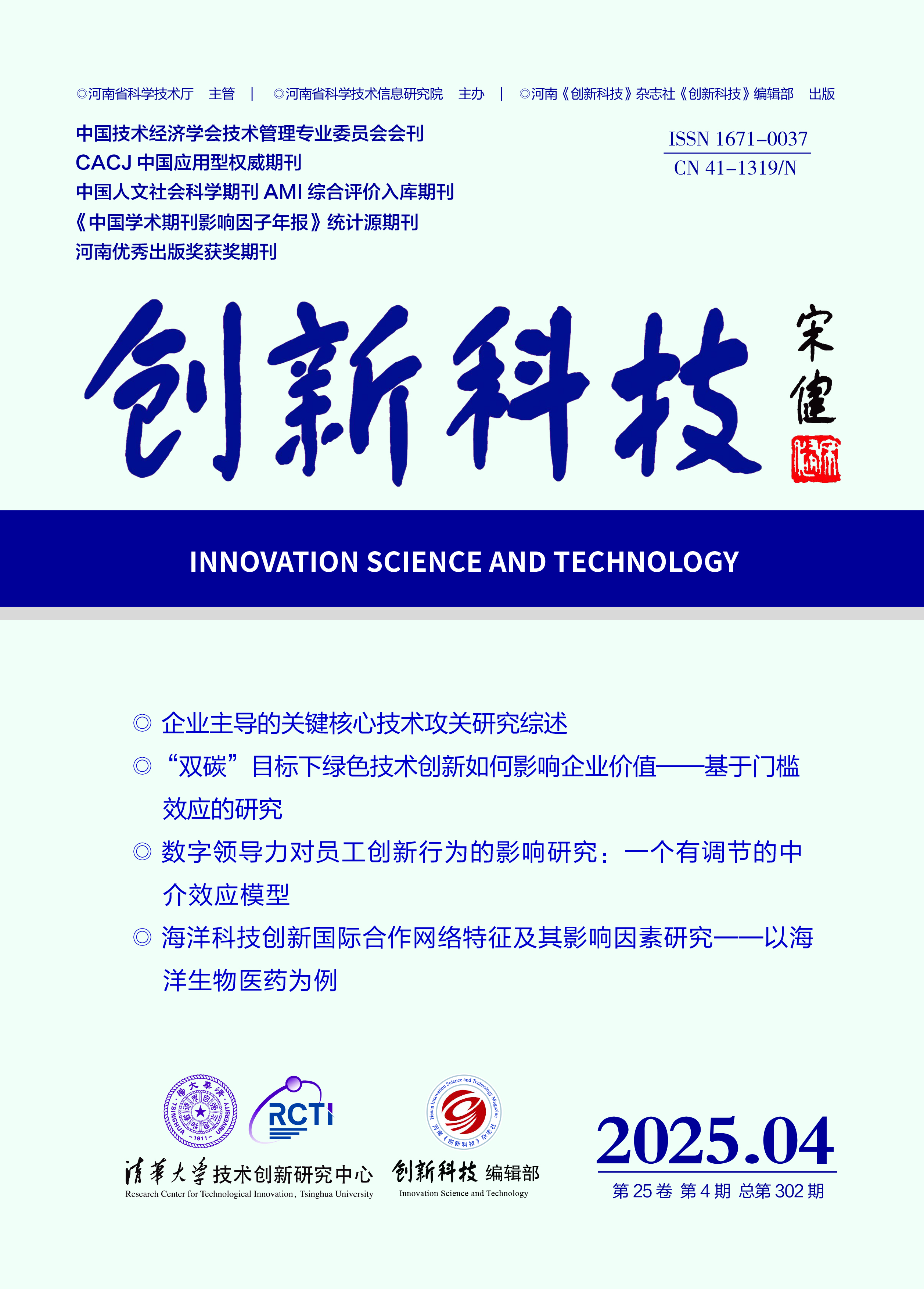INNOVATION SCIENCE AND TECHNOLOGY
Quick Search

All publication are peer-review
Peer review will take the from of double-blind review Judge objectively and impartially
There is no conflict of interest for the reviewer
Review articles shall be kept strictly confidential prior to publication
Research on Science & Technology Talents
Workplace Status, Job Autonomy and Bootleg Innovation: The Moderating Role of Entrepreneurial Orientation
Wang Yongwei1 , Geng Sen1 , Wu Weijie1 , Xia Yuyang2
(1.School of Business Administration, Henan University of Economics and Law, Zhengzhou 450046, China; 2.Business School, University of New South Wales, Sydney 2052, Australia)
Abstract: In the context of the evolving digital economy and widespread integration of artifi⁃ cial intelligence technology, market dynamics are undergoing rapid changes. The competitive landscape has become increasingly dynamic and intricate, prompting enterprises to place a grow⁃ ing emphasis on fostering employee innovation as a mean to gain a competitive edge. However, at the micro level of enterprise competition, there exists a limitation in the organizational provi⁃ sion of resources to support employee initiatives. Despite employees' ability to identify and per⁃ ceive customers' needs and potential opportunities at the grassroots level, the realization of their innovative ideas becomes challenging, constraining the overall innovative vitality of enterprises. Bootleg innovation serves as a strategic avenue for employees to overcome these constraints, en⁃ abling them to break free from the limitations of organizational resources. By creatively propos⁃ ing ideas that address customers' or organizational development needs, employees enhance ser⁃ vice capabilities, thus contributing to the core competitiveness of enterprise development. There⁃ fore, within the context of the deep implementation of an innovation-driven development strat⁃ egy, researching the formation mechanism of individual employees' bootleg innovation behavior becomes crucial for exploring new avenues and tracks. It also aids in correctly understanding and managing employees' bootleg innovation behavior. This paper adopts the self-determination theory and employs a matching questionnaire sur⁃ vey method to conduct a statistical analysis of 264 matching data from enterprises in Beijing, Zhengzhou, and Guangzhou et al. The objective is to investigate the influence of workplace sta⁃ tus on bootleg innovation and explore the mediating mechanism and moderating role of job au⁃ tonomy and entrepreneurial orientation in this process. The findings indicate that employees' workplace status has a positive impact on bootleg innovation behavior. Job autonomy acts as a mediating factor in the relationship between workplace status and bootleg innovation. Addition⁃ ally, entrepreneurial orientation positively moderates the relationship between job autonomy and bootleg innovation. In other words, a stronger entrepreneurial orientation atmosphere in the orga⁃ nization enhances the influence of workplace status on bootleg innovation through the job au⁃ tonomy. This study delves into the relationship between employees' workplace status and bootleg in⁃ novation at the individual level. It refines the path mechanism and contextual factors influencing workplace status's impact on employees' bootleg innovation behavior, thereby enriching the un⁃ derstanding of bootleg innovation antecedents. Moreover, the study offers practical insights for the management. Managers should accurately comprehend bootleg innovation behavior, refrain⁃ ing from viewing it solely as detrimental conduct that requires suppression. Furthermore, they should avoid confining employees to rigid working methods and processes, instead empowering them with autonomy. Lastly, companies can effectively navigate complex challenges and risks by fostering an entrepreneurial-oriented atmosphere, cultivating a forward-looking vision, and ac⁃ tively encouraging internal innovation.
Key words: bootleg innovation; workplace status; job autonomy; entrepreneurial orientation